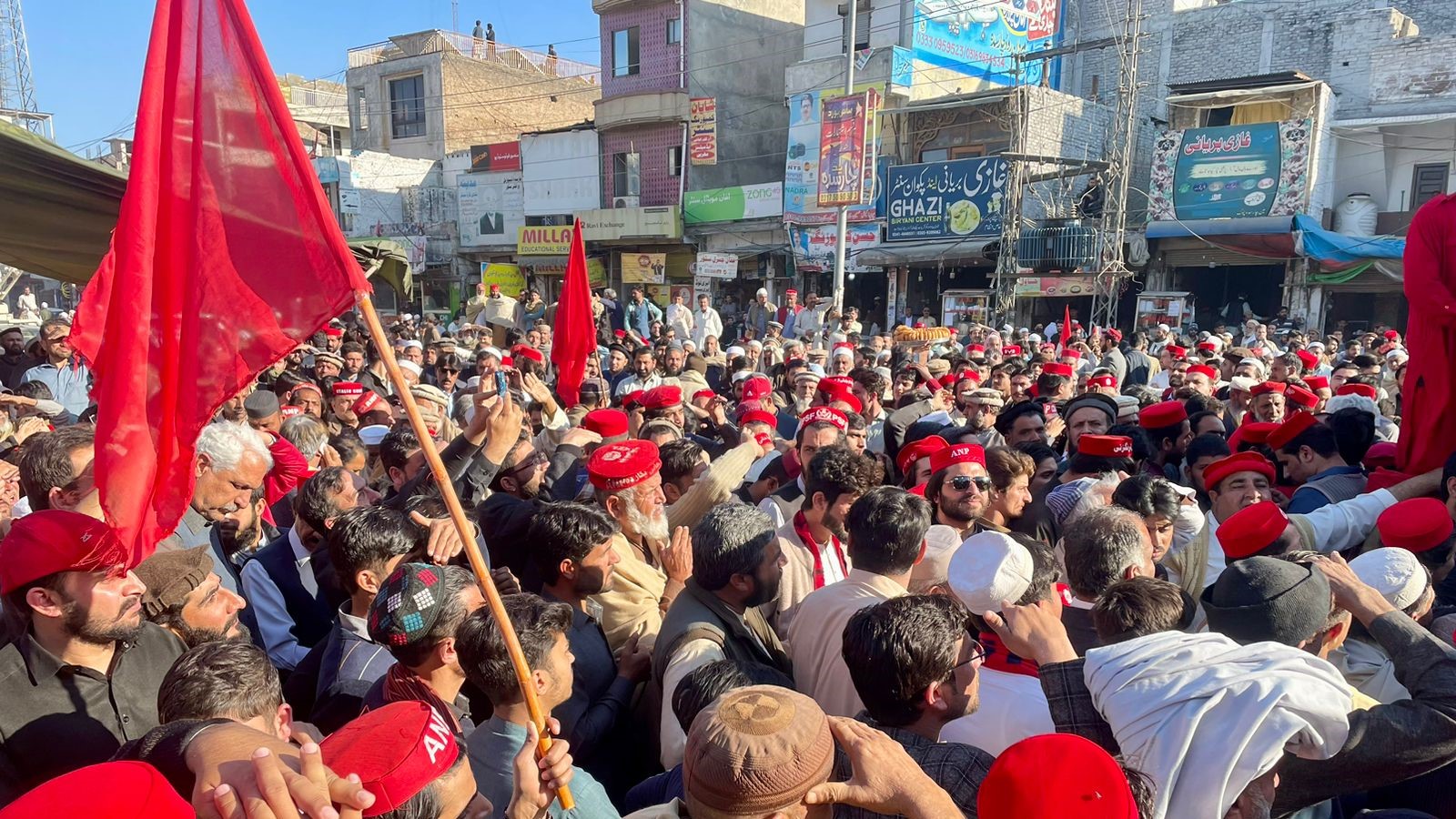Pakistan’s establishment parties, the Pakistan Muslim League Nawaz (PML-N) and Pakistan Peoples Party (PPP), along with several other parties, have reached a deal to form a new government. However, uncertainty remains over the final numbers in the National Assembly and many parties continue to insist that the elections on February 8 were rigged.
Former Prime Minister Imran Khan’s Pakistan Tehreek-e-Insaf (PTI), the left-wing Awami National Party (ANP), and the right wing Jamiat Ulema-e-Islam Fazal (JUI-F) have separately called for protests against the alleged electoral manipulation.
The ANP had one seat in the last National Assembly elected in 2018. This year, they failed to win a single seat. The party has claimed that rigging led to the defeat of its candidates. The ANP has organized protests since the election results were announced and called for a protest on Friday in Charsadda.
JUI-F chief Maulana Fazlur Rehman announced on Friday that his party does not recognize the results of the national elections as fair and considers the manipulation in the February 8 elections to be bigger than in the previous elections in 2018. He said the recent election was perhaps the most manipulated one in the country’s history. JUI-F has reportedly secured four seats in the National Assembly.
PTI continues to claim that it secured the majority of the seats in the elections and that the Election Commission of Pakistan (ECP) had rigged the results. The party announced on Thursday that it would challenge the results in court.
On Friday, the party also claimed that its elected members were prevented from attending the first sitting of the newly-elected Punjab provincial assembly. In the Punjab assembly too, the PTI has claimed a clear majority. However, the PML (N) is set to form a government in the province, with Maryam Nawaz, daughter of former prime minister Nawaz Sharif, expected to take oath as Chief Minister soon.
Meanwhile, the ECP has failed to allot the 70 reserved seats in the National Assembly to parties despite PTI independents merging with the Sunni Ittehad Council (SIC), a small party with no representatives elected in the National Assembly, in order to be able to claim its share of those seats.
However, ECP has yet not been able to decide whether the SIC is eligible for getting any reserved seats given the fact that it did not win a single seat in the National Assembly.
PTI-backed independent candidates elected in the provincial assemblies have also merged with the SIC for the same purpose.
PML (N) and PPP agree to share power
As per the agreement reached between PML (N), PPP, and others on Wednesday, former Prime Minister Shehbaz Sharif will once again take up the post and PPP leader and former president Asif Ali Zardari will be the next President. The PPP will get the governorships of Punjab and Khyber Pakhtunkhwa (KP) provinces whereas the Muttahida Qaumi Movement (MQM) will get the governorship of Sindh.
According to the latest results announced by the ECP for the 265 popularly contested seats in the National Assembly, the PML (N) has got 75 seats, the PPP 54, and MQM 17. They together have the required majority in the National Assembly to form the government. The SIC, comprising PTI members, will have around 90 seats. A few PTI independents have not joined the SIC for technical reasons.
The PPP has decided not to be part of the federal cabinet but will get Deputy Chairperson’s post in the National Assembly and that of the Chairperson of the Senate after it is formed.
The Senate is the upper house of Pakistan’s parliament and its members are elected by the members of the country’s provincial assemblies. The election for the Senate will be held after the newly elected provincial assemblies are formally in session.
The current political equation in the country makes it likely that PML (N) will form the government in Punjab province, whereas the PTI or SIC will form the government in KP, and the PPP in Sindh. The PPP, in alliance with PML (N) and other smaller parties, is set to form the government in Balochistan.
The picture at the federal level will become clear by February 29 as according to the constitutional provisions in Pakistan, the first meeting of the newly elected National Assembly has to be convened within 21 days of the election.





